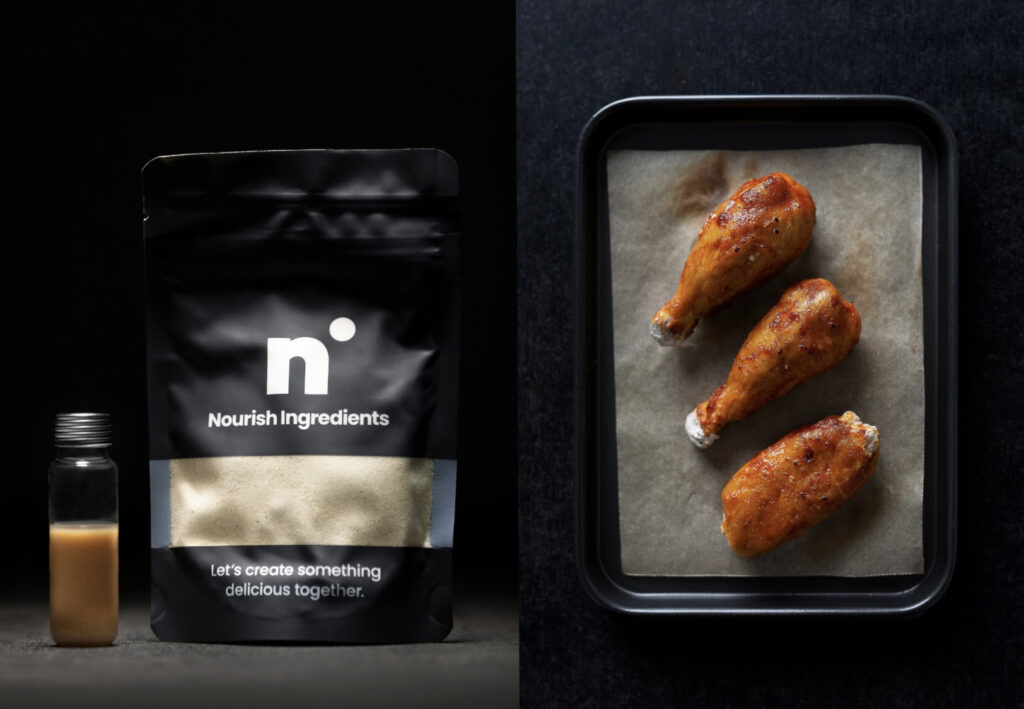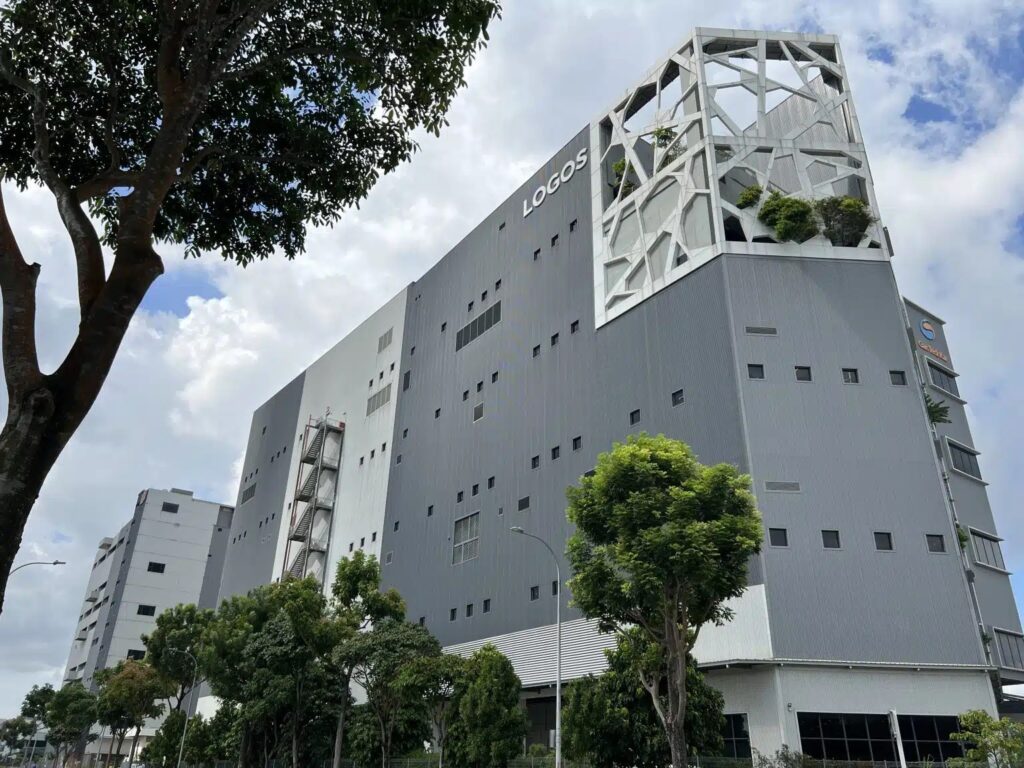Singapore Trade Minister on Food Tech Ecosystem: ‘Come to the Best Place in the World for Food Innovation’
8 Mins Read
Singapore is host to Rethink’s Asia-Pacific Agri-Food Innovation Summit this week, where it’s bolstering its role as a leader in the APAC food tech ecosystem. Off the back of a newly announced food safety bill that will advance novel food regulations, a host of new announcements are taking the city state’s food tech sector to new heights.
In his keynote speech to a crowd of investors, big food corporates and future food startups at the Asia-Pacific Agri-Food Innovation Summit (October 31 to November 2) this week, Singapore Trade and Industry Minister Alvin Tan outlined the country’s reputation as a hotbed for food tech and progressive regulation. One line summed it all up: “Come to the best place in the world for food innovation.”
And so many are. During the conference, the nation-state cemented its position as the regional hub of food system innovation with a wave of announcements including rebrands, new facilities and offices, as well as collaborations across sectors like precision fermentation and other novel proteins. Here’s what’s going on:
Belgian precision fermentation company Paleo announces Singapore office

Belgium precision fermentation startup Paleo has opened an office in Singapore to serve as a base for future operations in the APAC region. “We aim to also market our animal-free proteins in the Asia-Pacific in the near future,” says CEO Hermes Sanctorum.
The company makes animal-free myoglobin, the protein responsible for the colour and iron content of meat and fish. Paleo calls Singapore a “global hotspot for the meat and fish of the future”, with Sanctorum explaining: “If we wanted to expand anywhere as a growing food tech startup, it had to be here first. Our promising, cutting-edge technology can simply not be lacking over here.”
Although the startup’s precision-fermented yeast myoglobin is not fully ready for use in plant-based meat and fish applications, it hopes the Singapore expansion will help drive growth in the medium and long term. “Especially the wider APAC region is of great interest for us, as it proves that the demand for plant-based and non-conventional meat products is on the rise,” says Sanctorum.
He adds: “And, albeit small, also Singapore is investing in sustainable and future-oriented ways of food production. I am glad to see that specifically precision fermentation is being acknowledged both by investors as well as by governmental action plans.” Last year, for example, Californian precision fermentation giant Perfect Day launched Very Dairy in Singapore supermarkets, marking the first animal-free milk to be released in Asia.
Australia’s Nourish Ingredients picks Singapore as APAC hub

Paleo isn’t the only precision fermentation company setting up in Singapore. Australia’s Nourish Ingredients – just off the back of showcasing its breakthrough plant fat at SXSW Sydney – announced an expansion to the island nation to scale up its fat production during the Rethink Summit.
It has partnered with ScaleUp Bio, a joint venture between ADM and Temasek-owned Nurasa, which is Singapore’s first end-to-end contract development and manufacturing organisation service helping food tech companies process optimisation and scale up. The collaboration will support 10,000-litre batches of fermentation capacity and 100 litres of thermal processing to successfully scale the production of Nourish’s animal-free fats.
The Australian company says its fats – which include Tastilux – provide “the authentic taste, smell and cooking experience” of conventional meat, without the “cost or chemicals”. It adds that its precision fermentation process is designed to be scalable and affordable due to the relatively low volumes required, which enables it to work with large food producers.
Through its Singapore outpost and research collaborations with the Agency for Science, Technology, and Research (A*STAR), Nourish will support the government’s 30 by 30 initiative, which aims to reduce import reliance by producing 30% of all food consumed in the island nation by 2030.
“Singapore’s highly enabling ecosystem – from regulatory and legal support to production capabilities – and commitment to innovation and sustainability makes it an ideal hub for showcasing our groundbreaking natural fats to investors and customers in the Asia Pacific region,” said Nourish founder-director and CTO Anna El Tahchy. “We know that if we can improve the taste of alternative proteins, Nourish Ingredients can spur the category’s mainstream consumer adoption for greater food security in Singapore.”
Food tech co-man ScaleUp Bio signs multiple LOIs, announces two facilities

While Nourish is ScaleUp Bio’s first major customer, it will be far from the only one in the near future. It has signed letters of intent with New York-based C16 Biosciences (which makes a fermented palm oil alternative), Malaysian alt-meat brand Ultimeat, and fellow Singaporean food tech startup Allium Bio, which co-cultures algae and mycelium to turn into functional ingredients like protein isolates.
“We are truly excited to announce our first group of customer partners who are joining us in building the future of food through microbial precision fermentation,” said ScaleUp Bio CEO Francisco Codoñer. “These companies recognise the significant growth opportunities for novel foods across Asia and understand the truly unique advantages ScaleUp Bio offers, enabling them to achieve their strategic business objectives and together, empowering the next food revolution.”
In addition, the company announced that it is in the final pre-operational phase of opening Singapore’s first dedicated food-grade submerged microbial and precision fermentation facilities. The two plants will support the startup’s growth vision with R&D and pilot-stage manufacturing.
The Fermentation Joint Lab is an R&D hub jointly developed and operated by ScaleUp Bio and A*STAR’s Singapore Institute of Food and Biotechnology Innovation, located in Nurasa’s Food Tech Innovation Centre. The second facility – a pilot plant – is fully owned by ScaleUp Bip and will serve as its new headquarters situated in the high-tech manufacturing district of Tuas in the west, with full operations expected to begin in early 2024.
Singapore agrifood fund rebrands to Clay Capital and closes second $145M fund

Singaporean agrifood investor VisVires New Protein has rebranded as Clay Capital and announced the close of its second fund, which is worth $145M. “The idea behind our former name was a novel insight at that time and held broader meaning than the category-specific connotations it holds today,” the firm told AFN. It chose ‘Clay Capital’ as “clay soil is known to be fertile; a rich canvas upon which to grow healthy food”. “Healthy, fertile soil is the foundation of a healthy food system; we invest from the soil up.”
The new fund will see the VC firm invest in up to 15 companies across Asia, Israel and Europe, which are “applying technology to remedy fundamental problems in the food system”. Initial checks will range between $3M and $8M, with added cash kept for return investments.
Launched in 2014, Clay Capital is backed by government-linked funds, intergovernmental bodies, banks, insurers, and prominent agrifood families. It has made initial investments in biostimulant producer Toopi, kitchen robot startup Cook-e (both French), and Israeli bioherbicide company WeedOUT.
“As part of the larger climate tech market, food remains a major source of emissions and natural capital destruction,” said Clay Capital co-founder and partner Matthieu Vermersch. “What’s changed in the sector over the last nine years is that tailwinds have increased, the maturity of the technology ripened and, of late, a focus on business fundamentals returned.”
Industry think tank GFI APAC launches comms initiative to tackle alt-protein misinformation
Alt-protein think tank the Good Food Institute (GFI) APAC launched the Communication Leadership in Future Foods (CLIFF) initiative at Rethink’s summit, via a workshop hosted by Andrew D Powell and Paul Teng from the Agri-Biotech Knowledge Centre Ltd, GFI APAC managing director Mirte Gosker, and Mengxue Ou from the Nanyang Technological University.
With misinformation about alt-protein on the rise, consumer adoption can be hindered and delayed without effective messaging. To safeguard the industry from these challenges, CLIFF will provide training and implementation strategies on risk communication tools and techniques for the future food sector. The initiative will be a resource for the entire sector, but especially for early-stage companies with limited resources.
“Risk communication is neither PR nor corporate communication,” explained GFI APAC in a LinkedIn post. “It is a science-based approach for communicating effectively in high-concern, low-trust, sensitive, or controversial situations. Risk communication strategies are used to enhance knowledge, build trust and credibility, encourage dialogue, and influence attitudes, decisions, and behaviours.
“It is important to understand that consumers are being asked to change their behaviours, and perhaps even their food cultures. Change brings concerns and risk perceptions. These must be addressed through clear and understandable information. Risk communication is a vital tool in delivering these messages.”
Multi-step training programme for Singapore fresh grads aiming to join plant meat industry unveiled
The Summit also saw GFI reveal details about a multi-step training programme for fresh graduates and mid-careerists to address plant-based meat industry talent gaps. It will prepare people for three specific job roles within Singapore’s vegan sector: protein texturisation specialist, plant-based meat product specialist, and extrusion specialist. The aim is to eliminate a major industry bottleneck and ensure the required R&D and manufacturing facilities are fully staffed by highly skilled local employees.
“Singapore has long been a leader in innovation of all kinds, from information technology to biologics to now leading the world in building a healthier, safer food system.” These were the words of Josh Tetrick, CEO of GOOD Meat parent Eat Just, back in 2020 when it won the world’s first regulatory approval for cultured meat in Singapore.
Three years on, this remark seems just as accurate. These new developments at the Asia-Pacific Agri-Food Innovation Summit in Singapore outline just how potent the country’s food tech sector is. With the new food security bill, its regulatory advancements with cultivated proteins and precision fermentation, and government support via funding and legislation, Tan’s words couldn’t be truer: it really feels like the “best place” for food innovation.



